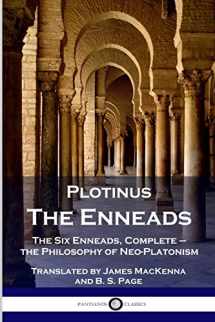
Plotinus - The Enneads: The Six Enneads, Complete - the Philosophy of Neo-Platonism
Book details
Summary
Description
This complete collection of the Enneads unites the entire compendium by Plotinus, in an authoritative translation by classical scholars James MacKenna and B. S. Page.
Following the traditional organization performed by Porphyry of Tyre, the six Enneads are comprised of a total of fifty-four tractates. Each of these concerns a subject of Plotinus' philosophy, be it the transit of the soul in the afterlife, the nature of phenomena such as beauty, or the characteristics of emotions such as happiness. Many of the writings are in the Platonist tradition, in keeping with the educational ideas of classical antiquity: Plotinus lived in Rome during the 3rd century AD, and was tutored in philosophy according to centuries of established practice.
Significantly, Plotinus taught about the idea of the "One", a supreme being of the universe that could not be divided. His elaborations on this subject, plus his extensive discussions of human emotion and moral philosophy, made him popularly referenced by pagans of his time, and successive waves of religious intellectuals, particularly from the Renaissance-era onward. In the 19th century a revival of interest took place, with the term neo-platonism assigned to late-classical era philosophies pioneered by Plotinus.


We would LOVE it if you could help us and other readers by reviewing the book
Book review



